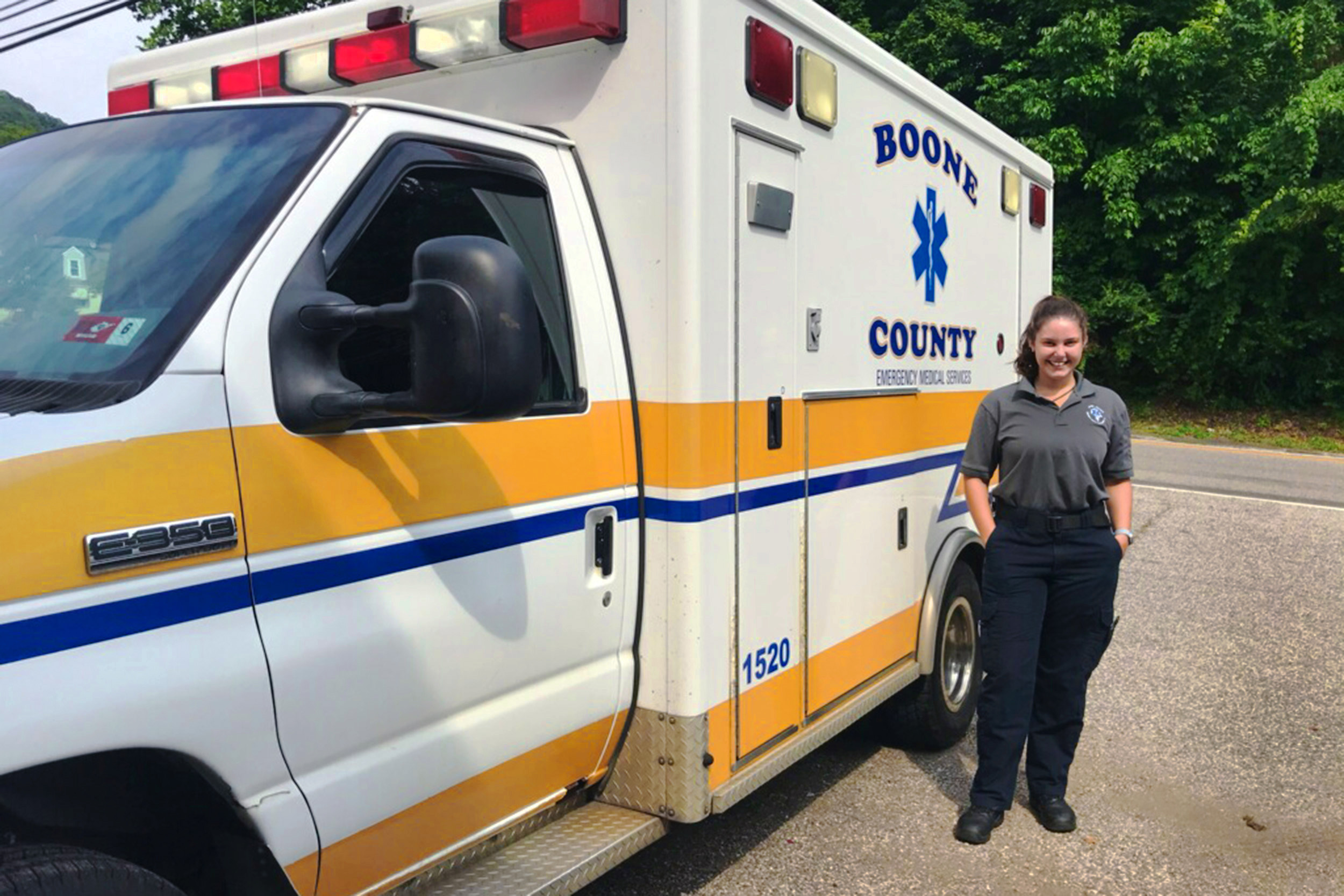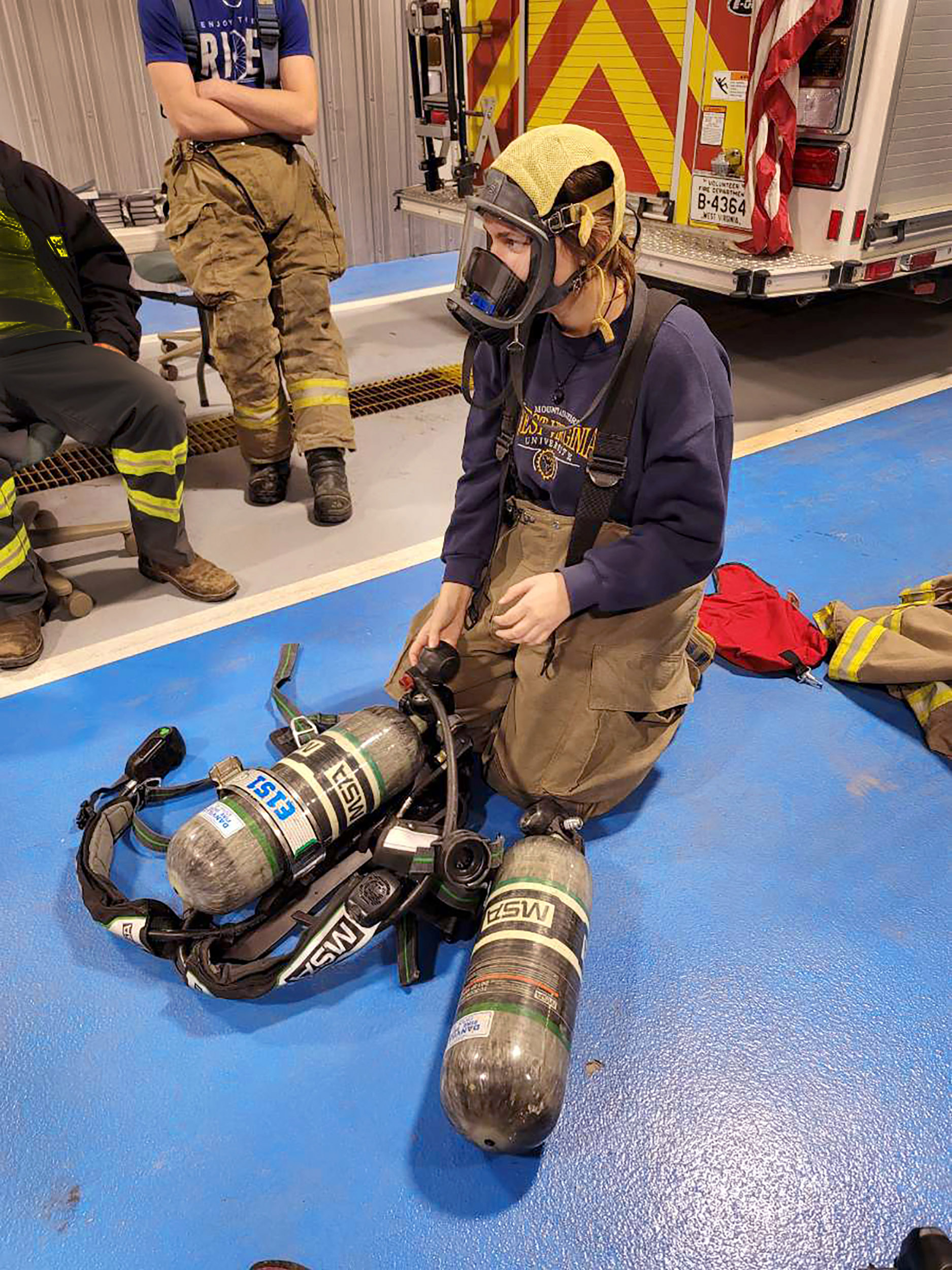
With five ambulances and a pandemic starting to peak, Jessica Miller ’21 worked 60-hour weeks as an EMT, while attending classes remotely. This semester she’s working part time.
Photos courtesy of Jessica Miller
Pandemic from the rear-view mirror of an ambulance
A West Virginia EMT says juggling classes, 12-hour shifts helped keep her connected
Jessica Miller ’21
When I was sent home to my small town of Madison, W.Va., in March 2020, I immediately started working part time as an EMT at my local station. Most of my shifts were 12 hours and took place overnight, 8 p.m. to 8 a.m., so that I could attend my classes during the day.
My hometown is very rural. We have five ambulances that cover the entire county. At my station, most shifts are 24 hours, though some are 12. A typical day varies: Some days I will not turn the wheel for 24 hours, and other days I am moving nonstop.
It wasn’t until November 2020 that COVID-19 began to significantly impact our community. I had shifted to working full time that fall, and there was one week when I had worked 100 hours because we were so short-staffed. Many of my shifts were 48 or 60 hours long, and sometimes I would come to work uncertain if I would have a partner. Our local hospital is small and not equipped to take care of a large number of people, so we began to transfer many patients to facilities in Charleston, W.Va.

To prevent the spread of COVID-19, we created a new ambulance unit specifically for COVID-19 patients. We outfitted the unit in plastic and placed our materials into one bag in order to simplify the cleaning process. We constantly spray everything down with hospital cleaner.
Most of my patients are older individuals who are really sick and experiencing breathing difficulties. Many are regular patients whom we transport to doctor’s appointments. Even though they are hurting, these individuals are always so kind, and often I’ll find out that they know my grandparents or the same people who I know, just because we live in such a small town. Though my favorite part about being an EMT is interacting with these patients, this is also the most challenging part. I develop a personal connection with them, and it is incredibly difficult to witness their illness and injury.
This semester I am working part time, and I pick up shifts whenever I can. Outside of work, I spend time with my friends at the fire department as well as my grandmother, who was recently vaccinated. During the day, I am usually in a molecular and cellular biology class or completing coursework. In my global health course, we are writing a semester-long paper, and I decided to focus my paper on EMT driving safety. After experiencing an unfortunate, avoidable ambulance wreck in March, I began to notice protocols that we were disregarding when it came to safely driving the ambulances, and I was inspired to write a policy analysis about the issue.
Throughout this past year, many people have been isolated. I have felt so grateful to be able to serve as an EMT, where I work on the front lines and interact with people every day. I haven’t felt that social isolation that many others have experienced. This work was just what I needed after coming home last spring. It helped me reconnect with my family and town, and the support I feel from my community is really special.
— As told to Samantha Sarafin ’21
Jessica Miller is in the Class of 2021 at Harvard College.



